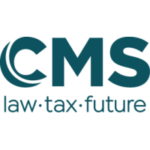-
Does your jurisdiction have a class action or collective redress mechanism? If so, please describe the mechanism and outline the principal sources of law and regulation and its overarching impact on the conduct of class actions in your jurisdiction.
In Portugal, there is a legal mechanism that allows the filing of class actions, enshrined both in the Constitution of the Portuguese Republic (CPR) and in ordinary legislation. Article 52 of the CPR expressly recognises the right of class action, allowing any citizen, individually or in association, to defend rights such as public health, the environment, quality of life, cultural heritage and the consumer. This constitutional rule is regulated by Law No. 83/95, of 31 August (Law of Popular Action).
The aim of class action is to associate individuals who have suffered damage under the same conditions together in a single process. By being represented by just an organisation or concentrating on a single individual, class actions not only prevent the same factual situation from having different legal outcomes, contributing to legal certainty and procedural effectiveness and efficiency, but it also allows certain types of litigation, often consumer-related, to have a legal regime that is more appropriate to the nature of the dispute.
Although the CPR provides the necessary circumstances to recognize the right of popular right, these do not seem to be exhaustive, as all goods and values that make sense when systematically evaluated by the constitutional provisions should be considered.
In addition to the general regime, regulated by Law 83/95, there are other sources of law that expressly provide for the right to bring collective actions. These include:
- Law No. 19/2014 of 14 April 2014 on environmental policies.
- Law No. 107/2001 of 8 September 2001 on the protection and enhancement of cultural heritage.
- Law No. 24/96 of 31 July 1996 on consumer protection.
- Law No. 486/99 of 13 November 1999, which enshrines a right of class action for the protection of individual homogeneous or collective interests of non-institutional investors in securities.
- Law No.35/2014 of 20 June 2014, regulating collective labour disputes in the civil service; and
- Law No.118/2019, on litigation of mass procedures, such as staff competition and recruitment procedures with more than 50 participants.
More recently, Decree-Law No. 114-A/2023, of 5 December, established the regime applicable to collective actions for the protection of consumers interests, strengthening the Portuguese legal framework and creating a system of qualified representation by designated entities, resulting from a transposition of Directive 2020/1828.
The mechanism of a collective action involves, as a rule:
- The existence of a harmful fact or threat of injury to diffuse, collective or homogeneous individual interests;
- The affectation of a plurality of individuals, even if indeterminate;
- The homogeneity of the rights or interests at stake;
- The legitimacy of the person who proposes the action (citizen, association or qualified entity).
-
What is the history of the development of the class actions/collective redress mechanism and its policy basis in your jurisdiction?
The history of the development of collective actions in Portugal is intrinsically linked to the evolution of social and political awareness about the need to protect interests that transcend the individual sphere.
The 1976 Portuguese Constitution itself provides for a fundamental right of class action in circumstances of: promotion and prevention, cessation or prosecution of offences against public health, consumer rights, quality life, preservation of the environment and cultural heritage and defence of assets of the state, autonomous regions and local authorities.
These were established at least in 1976, but the concept of popular action has had relevance in the legal system since the constitutional charter of 1826, limiting its proposition to certain crimes committed by judges (bribery, embezzlement and concussion).
Once the CPR provided for the mechanism as a fundamental right, Law No. 83/95 gave the necessary legislative development to popular action.
More recently, the creation of consumer protection class action, with Decree-Law No. 114-A/2023 follows an international and European trend of promoting collective redress mechanisms as a mean of ensuring effective access to justice and reparation of mass damages.
In general, class actions facilitate access to justice for groups of people who, individually, may not have the resources or incentives to litigate, also allowing entities to preserve interests that, because of their nature, are difficult to appropriate individually, such as the environment and public health. Therefore, policy bases such as democratization of access to justice, protection of diffuse interests and promotion of active citizenship, may not be forgotten.
-
What is the frequency of class actions brought in your jurisdiction, in terms of number of cases over the years and/or comparison to other types of litigation?
Although there is no official systematized statistical data that allows to accurately determine the number of collective actions brought in Portugal annually, according to our experience in class actions, we recognize that the number of class actions has been increasing, as well as the topics they cover and their complexity.
As an example, in recent years there have been actions related to:
- Unfair commercial practices
- Unlawful general contractual clauses
- Violations of the General Data Protection Regulation (GDPR)
- Hight-impact environmental litigation
Our perception is that as the public becomes more aware of their rights and procedural tools become more accessible, giving various benefits such as representation and financing, we believe that, over the next few years, this number will continue to increase significantly.
Furthermore, entities such as DECO – Portuguese Association for Consumer Protection, associations on behalf of investors or for the protection of the investor´s homogeneous individual or collective interests have played an important role in promoting this type of actions. That is because Article 6, Decree-Law No. 114-A/2023 also establishes that the entities must cumulatively comply with the requirements of independence, transparency, non-profit and demonstrate consolidated experience in protecting the interests of consumers to enforce these actions.
-
Are there certain courts or types of claims that are most prevalent (for example competition vs commercial litigation generally)?
In Portugal, collective actions are usually brought before courts of civil jurisdiction of first instance, but it will depend according to the matter of the harm. They can also take place in the administrative courts when the rights in question relate to the provision of public services or acts of public entities.
The actions of which we have been most aware are consumer class actions, that take place in courts of civil jurisdiction. The increase in this type of actions is probably related not only to the ease of fulfilling the requirements when approaching consumer rights, as there is no doubt that they are diffuse interests, but also to the new financing rules in the terms of Decree Law No. 114-A/2023.
Less frequent, but emerging, are the actions in competition matters, where there has been a growing articulation between decisions of the Competition Authority and follow-on actions brought by representative entities.
Apart from this, much has been said about the possibility of existing collective arbitration, a mechanism that gives additional jurisdiction to Arbitral Tribunals Despite the fact that this merge has already been regulated in countries like Spain, Brazil and France, the Voluntary Arbitration Law in Portugal seems to be contrary to the nature of class action regime. (For more information, please, see question 30 below.)
-
What is the definition of 'class action' or 'collective redress' relevant to your jurisdiction?
There is no single and definite definition of class action in Portugal. However, collective action or collective redress can be understood to be an action brought by a citizen or by an association or foundation, aiming at the defence of diffuse, collective or homogeneous interests, in matters such as the environment, health, consumption, quality of life, cultural heritage and services.
-
What are the general 'triggers' for commencement of a class action or collective redress in your jurisdiction from a factual perspective?
The most common triggers are:
- The existence of a generalized violation of rights of a collective or diffuse nature – the existence of harm that effects a large number of people is not only a “trigger” but also a requirement to the procedure of class action. These include illegal practices with a large-scale impact on a group of people, occurrence of environmental damage, violations of consumer rights and data protection and any damage that, when systematically evaluated by the constitutional provisions, should be considered.
- Difficulty in individual access to justice – the costs of the proceedings, the lack of information, fear of reprisal, or the complexity of the matter itself.
- Relevant public interest – the existence of a public interest in defending the rights and interests such as protection of the environment, public health, cultural heritage, or consumer rights.
- Performance of associations or representative entities – identifying the problem, mobilizing injured persons, and promoting legal action. The entities also end up benefiting from the defense of public interests, so they are always seeking for widespread harm. To purpose the action, the entities do not need any complaint or similar by any injured person. They can independently identify that some conduct represents harm to the interest in question in class action.
The central point is the existence of a common cause that justifies the collective treatment of the dispute, both for reasons of procedural, economic and substantive justice.
-
How do class actions or collective redress proceedings typically interact with regulatory enforcement findings? e.g. competition or financial regulators?
The interaction between collective actions and regulatory processes has clearly intensified. In competition matters, decisions of the Competition Authority (AdC) may serve as a basis for follow-on actions, conferring probative value to the facts established (cf. Article 623 of the CPC).
Similarly, in sectors such as banking and energy, decisions by the Securities Market Commission (CMVM) and the Bank of Portugal may lead to the initiation of collective actions for breach of rules of conduct or legal duties, and the reports and opinions of these bodies are often used as evidence, adding to the binding effect, a strong persuasive one, influencing the decisions of the courts.
So, yes, decisions by regulatory authorities can play a key role in the factual and evidentiary support of collective actions.
-
What types of conduct and causes of action can be relied upon as the basis for a class action or collective redress mechanism?
Class action covers all areas and sectors of the law as long as there is a violation of a collective, diffuse and homogeneous interest. Generally, the right to popular action is exercised to prevent behaviors that negatively affect: the environment (pollution and habitat destruction), public health (for example: exposure to toxic substances), consumers rights (misleading advertising and unfair terms), protection of personal data and functioning of essential public services.
The legal basis may also be non-contractual civil liability (Articles 483 et seq. of the Portuguese Civil Code), violation of specific legal or regulatory rules, or failure to comply with legal duties in administrative or regulatory matters.
-
Are there any limitations of types of claims that may be brought on a collective basis?
There are no rigid material limitations, as long as the action fulfils the general and special requirements set out in the various sources of law, such as demonstration that the dispute involves a damage to collective, diffuse or homogeneous interests of determinable group of persons. In fact, the action may take any of the forms provided for in the Code of Civil Procedure and may pursue any of the legally permitted objectives. These include requests for provisional measures, where appropriate.
Many cases in our jurisprudence refuse actions in which the interests or damages are purely individual or totally heterogeneous and in which the active legitimacy is exclusive to certain subjects or that do not have common affectation. A case law study of decisions brought in class actions reveals that in most cases the process ends due to procedural reasons as the above.
For example, actions that require an individualized assessment of the claim are not homogenous, as actions involving personal rights and family related cannot be brought collectively. It is possible that the people who bring the action also have an individual interest in question, however, the success of the action as a class action will also depend on the verification of a collective interest.
However, it is worth mentioning that there are no time limits specific to popular actions, only general rules on limitation periods apply. The standard time limit stipulated in the Civil Code is 20 years, and shorter periods of five and two years, and even six months, are set out for certain rights.
-
Who may bring class action or collective redress proceeding? (e.g. qualified entities, consumers etc)
In Portugal, the proposal of collective actions depends on the type of action in question. In the case of popular action, provided for in Law No. 83/95, Article 2, any citizen with electoral capacity, as well as associations and foundations whose objective is to defend the interests in question, may propose this type of action. The Public Prosecutor’s Office also has legitimacy and may act on its own initiative or in a subsidiary manner. In addition, local authorities may intervene where the interests at stake are confined to their territory.
In the context of collective actions in consumer matters, regulated by Decree-Law No. 114-A/2023, Article 3, only qualified entities have submitted representative actions on behalf of consumers. These entities shall be officially recognized and included in the national list – and, where applicable, in the European list – for the purposes of cross-border actions. To be considered qualified, these entities must comply with requirements of independence, transparency and non-profit nature, as provided for in Article 4, no. 1, of the same law, in addition to demonstrating experience in defending consumer rights.
Thus, individual consumers, as a rule, cannot directly bring a collective action under this decree-law, but must resort to an entity qualified for this purpose, even though they may always participate in the process and benefit from its results, including in terms of compensation.
-
Are there any limits on the nationality or domicile of claimants in class actions or collective redress proceedings?
In the context of the Popular Action Law (Law No. 83/95), Portuguese nationality is not required, and it is only necessary that the proponent is a citizen with active electoral capacity in Portugal (Article 2, no. 1). As for representative actions brought under Decree-Law No. 114-A/2023, these are proposed by qualified entities, which may act on behalf of consumers regardless of their nationality or residence, if they are covered by the harmful situation in question (Articles 3 and 8 of Decree-Law No. 114-A/2023).
In addition, under Article 7 of Decree-Law No. 114-A/2023, the Public Prosecutor’s Office and the Directorate-General for Consumers (DGC) are qualified to bring cross-border collective actions in other Member States. Other entities may also be endowed with identical qualifications and must fulfil certain requirements.
-
Are there any limitations on size or type of class?
Portuguese law does not impose strict numerical limits on the size of the group of consumers or citizens represented in the collective action. However, it is required that the interests are homogeneous or common, and that there is a concrete and sufficiently determined collective allocation (Articles 1 and 2 of Law No. 83/95; Articles 3 and 5 of Decree-Law No. 114-A/2023). The scope of the panel will be evaluated according to the legitimacy of the proposing entity and the nature of the right invoked.
-
Are there any requirements or prohibitions in sourcing this class?
The constitution of a “class” does not require the nominal identification of all the injured parties from the outset. However, the delimitation of the criteria that determines who is part of the group is fundamental. In opt-out actions, affected consumers or citizens are automatically represented, and anything different can be stated. The judge may, at any time, order steps to clarify the contours of the panel represented (article 14 of DL No. 114-A/2023).
-
Which courts deal with class actions or collective redress proceedings?
Collective actions follow, in principle, the rules of jurisdiction of the judicial courts of civil jurisdiction, according to the Civil Procedure Code. Territorial jurisdiction is governed by the general rules (Article 59 of the Civil Procedure Code), and the court of the domicile of the defendant has jurisdiction. In cases covered by DL 114-A/2023, ordinary civil jurisdiction applies, unless otherwise provided for in special legislation.
As said, administrative courts also have jurisdiction over class actions.
-
Are there any jurisdictional obstacles to class actions or collective redress proceedings?
There are no specific jurisdictional obstacles, as long as the legal requirements are met. However, practical obstacles may arise related to the complexity of evidence, difficulties in defining the universe of represented parties, or procedural resistance from the respondents. In cross-border actions, issues of international jurisdiction may arise, governed by the Brussels I (Reformed) Regulation – Regulation (EU) No. 1215/2012.
Approaching general obstacles, in addition to the above mentioned, it is worth taking into account lis pendens or res judicata, since the action can be proposed by any citizen, if there is already a pending action or a final decision on the same matter, the court may dismiss the action ordering the joinder of the case files or the activation of the opt-out system. Individuals who did not exercise their right to opt-out cannot initiate individual actions if there is an identity of claim, cause of action and parties (res judicata).
-
Does your jurisdiction adopt an “opt in” or “opt out” mechanism?
Portugal preferentially adopts the opt-out system, both in Law No. 83/95 (Article 14 and 15) and in Decree-Law No. 114-A/2023 (Article 12), which means that all consumers or citizens covered by the criteria defined in the action are automatically included without requiring a specific mandate or explicit authorization, unless they expressly declare their exclusion. This model aims to ensure greater effectiveness and breadth of collective redress.
However, for consumers who do not have their habitual residence in Portugal, under de Decree-Law 114-A/2023, the opt-in regime has been expressly established. (Article 12, no 1).
Portugal is one of the few legal systems that provides for an opt-out system for collective actions, which may justify that, in order to standardize the regime, for non-residents in Portugal the most common system in the European Union should be established.
-
What is required (i.e. procedural formalities) in order to start a class action or collective redress claim?
Firstly, the initial application must be submitted in accordance with Article 552 of the Code of Civil Procedure, which must contain the identification of the parties, the statement of the facts and legal grounds invoked, the formulation of the request, the delimitation of the universe of consumers affected, as well as the means of proof and evidentiary requirements deemed necessary.
The application must also identify the intended legal effects of the action, namely the cessation of the unlawful practice (injunction action), the order to compensate for the damage suffered or any other admissible legal effect.
Pursuant to Article 3 of Decree-Law No. 114-A/2023, only qualified entities may bring representative actions on behalf of consumers. So, these entities must prove their legitimacy.
It is also important to underline the requirement of publicity of the process, provided for in Articles 7 and 17 of Decree-Law No. 114-A/2023 and Article 5 of the Law 83/95. The court, after admitting the action, must order the public disclosure of the existence of the representative action by means considered appropriate and effective, so as to ensure that the consumers potentially affected are aware of it. This publicity may be carried out, inter alia, through publication on official websites, social media or any other accessible channel that is proportionate to the impact of the action. The decision on the means and extent of advertising must consider the nature of the action, the size of the target consumer group and the associated costs. Information must also be published on the website of the Directorate General for Consumers (Article 20).
This requirement of publicity aims to guarantee consumers the right to information, promote their eventual adherence to the action (in cases where this is admissible), and ensure the practical effectiveness of the decisions rendered, enhancing the erga omnes effects typical of collective actions.
-
What other mandatory procedural requirements apply to these types of matters?
Besides the specific rules provided by the special laws in class actions, the Civil Code of Procedure should also apply when not incompatible with the nature of popular actions – for instance, the class action must follow all the procedural principles provided by the Civil Procedure Code.
Looking to some common law jurisdictions we can add that the Portuguese jurisdiction does not provide for a procedural phase of “Class Certification” to authorize the class representation. However, the judge may summarily dismiss the initial petition if he considers that the request is clearly untenable, but will have, nevertheless, to hear the parties in order to do so (Article 13 of Law 83/95).
-
Are normal civil procedure rules applied to these proceedings or a special set of rules adopted for this purpose?
Article 21 of Decree-Law No. 114.A/2023 establishes that Law No. 83/95 shall apply to everything that is not provided by the present.
Consequently, when there is special legal framework to some subject in both of them, the Civil Procedure Code rules shall apply, acting as subsidiary rules.
In addition to the above-mentioned procedure formalities, the rules of appeals, evidence and enforcement also apply, as long as they do not contradict the nature of popular actions.
-
How long do these cases typically run for?
There is no data that demonstrates the average duration of a class action nowadays; its duration depends on various factors, such as the evidence to be produced, the number of parties and their interventions, where the action is being held and the availability of the court itself.
-
What remedies are available to claimants in class action or collective redress proceedings?
Class actions in Portugal may take any of the forms provided for in the Code of Civil Procedure and may pursue any of the legally permitted objectives. These include requests for provisional measures, where appropriate.
Under Decree-Law No. 114-A/2023, when seeking an injunction, claimants are not required to prove actual harm suffered by the consumers affected by the infringement (Article 12, no 5).
The same procedural remedies set out in the Code of Civil Procedure apply: appeals to the Court of Appeal, appeals to the Supreme Court of Justice, as well as motions for nullity or complaints, where applicable.
Qualified entities enjoy full rights of appeal, including the ability to challenge both interlocutory and final decisions.
The effects of the court’s decision extend to all injured parties covered by the action, even if they are not direct participants in the proceedings, unless they have opted out.
-
Are punitive or exemplary damages available for class actions or collective redress proceedings?
No. The Portuguese legal system does not provide for punitive or exemplary damages. Civil reparation is intended only for the restoration of the injured property (Article 562 of the Civil Code), and compensation of a punitive nature is not permitted.
Compensation for collective non-material damage may be awarded, provided that it is substantiated and duly quantified (Article 496 of the Civil Code and consolidated case law).
-
Is a judge or multiple judges assigned to these cases?
For these cases a single judge is appointed in the courts of first instance. The Civil and Administrative courts in Portugal only function with a single judge.
The Courts of Appeal are composed of three judges.
-
Are class actions or collective redress proceedings subject to juries? If so, what is the role of juries?
No. The Portuguese judicial system does not provide for the existence of jury in civil matters, including in collective actions. The decision rests exclusively with the designated judge, who assesses both matters of fact and law. (Article 599 Procedural Civil Code).
-
What is the measure of damages for class actions or collective redress proceedings?
The measure for damages in a collective action follows the general principles of civil liability and civil procedure, meaning that the indemnity should restore the injured party or group to the position they would have been in had the harm not occurred. Also, Article 22 of Law No 83/95 expressly provides that the plaintiff may request, in addition to an order to abstain or to perform a certain act, compensation for the damage caused, including non-material and material damage.
Compensation may be set at a global amount to be distributed to the injured parties or according to the damage specifically proven, and subsequent settlement may be used in accordance with Articles 609(2) and 564 of the Civil Code. The judge may also order the establishment of a compensation fund to guarantee payment to the beneficiaries, recalling that, as Portugal adopts an opt-out system, they must be aware that anyone that fulfils the factual requirements have the right to be compensated.
When applying the Decree-law 114-A/2023, if some individuals do not claim their share of the awarded indemnity the amount will go firstly to the process costs and fees, secondly to the third party and finally, to the Fund for the Promotion of Consumer Rights and for the Institute of Financial Management and Justice Equipment (Articles 16, no 6, 7 and 8)
-
Is there any mechanism for the collective settlement of class actions or collective redress proceedings?
The special rules governing class actions do not provide a dedicated settlement mechanism. Therefore, any settlement must follow the general rules set out in Articles 283 and 290 of the Portuguese Code of Civil Procedure.
Although there are no specific provisions on settlements within popular actions, Decree-Law No. 114-A/2023, in its Article 6, states that authorities have standing to act as claimants, provided they are independent, meaning they are solely responsible for decisions such as initiating, withdrawing, or settling the class action. Additionally, Article 16 of Law No. 83/95 provides that, in cases of withdrawal, settlement, or conduct harmful to the interests at stake, the Public Prosecutor’s Office may intervene and replace the original claimant.
Given the nature of the interests involved in class actions – diffuse, homogeneous, and collective – the admissibility of settlements must be carefully assessed. Since Portugal primarily adopts an opt-out system, a key question arises: Does a settlement bind all affected parties, or only those who opted in? While Article 16 might suggest that the settlement applies only to the original claimant, this is a critical aspect of the regime that remains unclear and would benefit from further legal clarification.
-
Is there any judicial oversight for settlements of class actions or collective redress mechanisms?
According to Article 290, no 4 of the Code of Civil Procedure, the judge may exercise oversight to safeguard the public interest when a settlement is proposed. However, an extrajudicial settlement does not require court approval.
-
What are the top three emerging business risks that are the focus of class action or collective redress litigation?
The main emerging risks for companies in Portugal in the context of collective actions include:
- Protection of personal data: violations of the GDPR are increasingly the subject of collective actions, especially in situations of data leakage or misuse.
- Sustainability and environment (ESG): harmful environmental practices or greenwashing have been in the sights of environmental defense organizations and may be the target of collective actions.
- Unfair commercial practices: Misleading advertising, unfair contract terms, and opaque terms of service are often challenged.
-
What trends in litigation are evident in the last three years in your jurisdiction in respect of class actions?
With the transposal of Directive 2020/1828, Portugal, despite already providing for class actions, had the opportunity to develop its legal provisions by establishing a special national class action regime for the protection of consumer rights, but not only. The Decree-Law 114-A/2020 add and diverge and some meaningful aspects comparing to Law 83/95.
Besides the legitimacy (Please see above question 10.), and information and Knowledge (Please see above question 17.), the matter of Costs and Financing was also a trending theme that Decree-law focused in.
Article 20 of Law 83/95 already provided for an exemption of costs, as long as the claim was ruled to be partially well-founded, now, as set out in Decree-Law, the actions can be financed since the financial power do not influence in any way the procedural strategy or the decision itself. The plaintiff has to be independent of its financier, who, in turn, cannot be a competitor in any way with any of the defendants.
This investment can also be reimbursed in the event that the amount of compensation is not claimed in full, but it will be the court deciding in what way the third-party funder can be paid.
Seeing through the developments brought by the Decree-Law we have no doubts that this reinforcement the European aspect, as well as warrant a greater institutionalisation and professionalisation of the entities allowed to bring collective actions and increase technical and legal complexity of lawsuits.
-
Where do you foresee the most significant legal development in the next 12 months in respect of collective redress and class actions?
Given that Decree-Law No. 114-A/2023 is still relatively recent, it is expected that the next legal developments, if existing, will result from their own application. We are not aware of any other legal changes that are planned for the next 12 months.
Even so, much has been said about the possibility of linking the class actions with arbitration. The system of collective arbitration in Portugal seem to us a possibility and is already in force in countries such as Spain, France and Brazil, suggesting rapid developments in the near future.
Since a class action can be brought in any court under the terms of Article 52 of the CPR, and arbitration tribunals are effectively enshrined as such in Article 209, the possibility of collective arbitration seems obvious. But, on other hand, looking at the legislation that regulates voluntary arbitration, Law 63/2011the nature of arbitration seems to raise some questions in terms of compatibility with the nature of class actions.
The arbitration agreement mentioned in article 1 of the LAV, immediately demonstrates one of the major obstacles to this merge, because is absolutely contrary to the opt-out regime laid down in the Portuguese class action. As this procedure is not about a mere plurality of parties but a multiple and sometimes indiscriminate representation of injured parties, it is not possible for the injured party silence to bind them to an arbitration decision in the same way that it binds them to the outcome of class action.
Another obstacle is the principle of confidentiality set out in the LAV (Article 30). Under the general law, the incompatibility of the regimes was not so obvious. However, with the rationale for the Directive and the protection of consumers in terms of their basic right to information, the principle of confidentiality cannot be considered to be fulfilled under any circumstances, even though it is also characteristic of arbitration proceedings.
-
Are class actions or collective redress proceedings being brought for ‘ESG’ matters? If so, how are those claims being framed?
Currently, ESG-related issues can be subject to class actions when collective, diffuse, or homogeneous interests are at stake — as is the case, for example, in situations of greenwashing (false or misleading environmental claims in advertising).
There is, to date, no legal instrument that specifically regulates so-called “ESG collective actions.” The only type of collective action expressly provided for under Portuguese law concerns matters of consumer protection.
Additionally, Regulation (EU) 2024/3005 was adopted in November 2024, establishing a common framework for ESG rating providers in the European Union, with the aim of enhancing the transparency, reliability, and comparability of ESG ratings. However, as of now, there is no record of its corresponding transposition or implementation.
-
Are there any proposals for the reform of class actions or collective redress proceedings? If so, what are those proposals?
We are not aware of any amendment or reform planned for collective actions, especially considering that Decree-Law No. 114-A/2023 has only very recently entered into force.
If any changes are introduced in the near future, we would expect them to result from the gradual implementation of this legislation and from any needs that may arise in practice.
Portugal: Class Actions
This country-specific Q&A provides an overview of Class Actions laws and regulations applicable in Portugal.
-
Does your jurisdiction have a class action or collective redress mechanism? If so, please describe the mechanism and outline the principal sources of law and regulation and its overarching impact on the conduct of class actions in your jurisdiction.
-
What is the history of the development of the class actions/collective redress mechanism and its policy basis in your jurisdiction?
-
What is the frequency of class actions brought in your jurisdiction, in terms of number of cases over the years and/or comparison to other types of litigation?
-
Are there certain courts or types of claims that are most prevalent (for example competition vs commercial litigation generally)?
-
What is the definition of 'class action' or 'collective redress' relevant to your jurisdiction?
-
What are the general 'triggers' for commencement of a class action or collective redress in your jurisdiction from a factual perspective?
-
How do class actions or collective redress proceedings typically interact with regulatory enforcement findings? e.g. competition or financial regulators?
-
What types of conduct and causes of action can be relied upon as the basis for a class action or collective redress mechanism?
-
Are there any limitations of types of claims that may be brought on a collective basis?
-
Who may bring class action or collective redress proceeding? (e.g. qualified entities, consumers etc)
-
Are there any limits on the nationality or domicile of claimants in class actions or collective redress proceedings?
-
Are there any limitations on size or type of class?
-
Are there any requirements or prohibitions in sourcing this class?
-
Which courts deal with class actions or collective redress proceedings?
-
Are there any jurisdictional obstacles to class actions or collective redress proceedings?
-
Does your jurisdiction adopt an “opt in” or “opt out” mechanism?
-
What is required (i.e. procedural formalities) in order to start a class action or collective redress claim?
-
What other mandatory procedural requirements apply to these types of matters?
-
Are normal civil procedure rules applied to these proceedings or a special set of rules adopted for this purpose?
-
How long do these cases typically run for?
-
What remedies are available to claimants in class action or collective redress proceedings?
-
Are punitive or exemplary damages available for class actions or collective redress proceedings?
-
Is a judge or multiple judges assigned to these cases?
-
Are class actions or collective redress proceedings subject to juries? If so, what is the role of juries?
-
What is the measure of damages for class actions or collective redress proceedings?
-
Is there any mechanism for the collective settlement of class actions or collective redress proceedings?
-
Is there any judicial oversight for settlements of class actions or collective redress mechanisms?
-
What are the top three emerging business risks that are the focus of class action or collective redress litigation?
-
What trends in litigation are evident in the last three years in your jurisdiction in respect of class actions?
-
Where do you foresee the most significant legal development in the next 12 months in respect of collective redress and class actions?
-
Are class actions or collective redress proceedings being brought for ‘ESG’ matters? If so, how are those claims being framed?
-
Are there any proposals for the reform of class actions or collective redress proceedings? If so, what are those proposals?





















